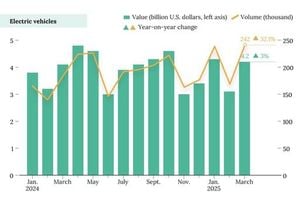After almost two decades of wrongful imprisonment, Tomasz Komenda, who died from cancer on February 21, 2024, left behind not only painful memories but also complicated legal battles over his inheritance. Having been exonerated just three years prior to his death, Komenda's legacy has now become tangled with heated discussions among his closest family members.
Komenda was wrongfully convicted back in 2004 for crimes he did not commit, leading to 18 years of imprisonment. After being acquitted by the Supreme Court on May 16, 2018, he received compensation of 12.8 million złoty (approximately 2.8 million USD) for his suffering. His tragic story captured public attention, and his eventual quest to rebuild his life was seen with hope—until his untimely passing.
The legal proceedings surrounding Komenda's inheritance are being closely monitored by the public, especially with the suspicion of the presence of a will indicating heirs other than his minor son, Filip. This situation is exacerbated by the fact Komenda’s brother, Gerard Komenda, initiated the legal action shortly after Tomasz’s funeral on March 8, 2024, demonstrating the family tensions which have emerged following the death.
During the latest court session on February 19, 2025, only Anna Walter, the mother of Filip and Komenda's former partner, appeared. Her evident distress was captured by witnesses as she left the court, visibly shaken but without disclosure of the court's internal discussions, due to the session being held behind closed doors. Legal expert Jakub Placek weighed in, noting, "This case raises significant interest, especially since, as suggested by a lawyer, the deceased likely left behind a will naming heirs other than his minor son," which adds layers of complexity to the inheritance matter.
The District Court of Wrocław has not yet set any specific new hearing dates, opting instead to adjourn the proceedings at their discretion. The court spokesperson stated, "There is no set date for the next hearing as the proceedings were adjourned at the court's discretion," indicating the possibility of additional witnesses or expert testimonies being called to clarify the case.
What makes this inheritance battle even more poignant is the background of Tomasz Komenda himself. After long years of injustice and enduring suffering, the efforts to secure his reconciliation with society were thwarted not just by his health struggles, but now also by the dispute over his estate. Should the rumors of the will prove accurate, all eyes will be on how the court navigates familial disputes and the legalities of inheritance determinations.
Rumor has it the will could name someone other than young Filip as the beneficiary, which, under Polish law, would entirely change the fate of Tomasz's considerable discovery. If no will existed, Filip would automatically inherit his father's estate through statutory inheritance laws—a relatively straightforward process compared to the current situation.
Upcoming hearings are set to explore not only the legal ramifications but also the emotional legacies left behind. Given the background of wrongful convictions and the stark realities of Komenda's life after prison, how the state deals with the aftermath of such tragedies could shape future stories of justice and restitution for victims of miscarriages of justice.
While the emotional stakes are high for all involved, the legal proceedings will shed light on the unresolved matters of unfinished business for Tomasz Komenda and his family's future. The collision of law, grief, and familial greed promises to be the next chapter in this already tragic tale—a chapter many are eager to follow.



